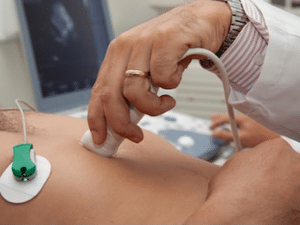Echo
Echo in Iran
Best echo hospital in Iran
More than 35.000 Iranian and foreign patients are going under echo hospital in Iran each year. echo in Iran is on top of the middle-east regarding its skilled specialists and surgeons.
Here are the best hospitals for echo in Iran:
- Treata Professional Hospital
- Gandi Hospital
- Moheb Mehr Hospital
Echo cost in Iran
There is a significant difference between the cost of echo in Iran and other countries. The most important factors for low price of it in Iran are:
- The large number of echo hospitals in Iran.
- The large number of applicants for echo in Iran
echo cost in Iran varies depending on the echo and the hospital. An average cost of echo in Iran is 100 dollars.
echo cost in Iran in comparison with other countries
This surgery costs $2000 in the U.S., $700 in Europe, $300 in Thailand and $200 in Turkey.
Best echo surgeon in Iran
More than 70.000 heart surgeries are being performed each year in Iran. Experienced Iranian doctors with an excellent record are performing the operations.
One of the most important factor for choosing a good surgeon for echo in Iran is doctor has done many echo.
You can find the best doctors for echo in Iran in our website by following their different experiences and before- after gallery.
Many patients travel to Iran for echo. One of the reasons for this matter is Iranian specialists and surgeons who have high surgery success rates.
- Low cost of echo in Iran
- Low cost of accommodation in Iran
- Well experienced doctors
- High number of echo in Iran
echo hospitals accordant with today’s European standards are performing the highest quality operations in Iran. Another reason for echo in Iran is its lower cost compared to other countries.
How Long Should I Stay For echo In Iran?

About Echo
Cardiac echocardiography is one of the most common diagnostic techniques which are used to evaluate the heart, its valves and the beginning of large arteries by the cardiologist. Echocardiography is a non-invasive technique such as ECG but is more advanced. No radiation or a dangerous wave is transmitted to the patient during echocardiography. High-frequency sound waves are guided to the heart and echoes are recorded by a specific receiver.
Types of Echo:
- Transthoracic echocardiography: This is the most common type of echocardiography. It’s painless and noninvasive. A device called a transducer will be placed on the chest over the heart.
- Transesophageal echocardiography: If a transthoracic echocardiogram doesn’t produce definitive images, the doctor may recommend a transesophageal echocardiogram. In this procedure, the doctor guides a much smaller transducer down the throat through a thin, flexible tube in the mouth.
- Stress echocardiogram: A stress echocardiogram uses traditional transthoracic echocardiography. However, the procedure is done after exercise or taken medication to make the heart beat faster.
- Three-dimensional echocardiography: A three-dimensional (3-D) echocardiogram uses either transesophageal or transthoracic echocardiography to create a 3-D image of the heart.
- Fetal echocardiography: Fetal echocardiography is used on expectant mothers sometime during weeks 18 to 22 of pregnancy. The transducer is placed over the woman’s belly to check for heart problems in the fetus.
Echo Recommended For:
- Patients who have a serious heart condition, such as uncontrolled heart failure, irregular heartbeats (arrhythmias), or significant valve disease
- Patients who have symptoms of heart disease, such as chest pain or shortness of breath
- Patients who get tired or out of breath more quickly than they did in the past
- Patients who have an abnormal chest X-ray or electrocardiogram that points to heart problems.
Before Echo
Patients should tell a complete medical history to the doctor. Also, they need to let him know about all of the medicines and supplements (vitamins, minerals and herbal medicines) taken and allergies.
During Echo
Usually, the doctor administers sedative drugs and local anaesthesia. An echocardiographic expert performs echocardiography by a special probe. The procedure takes about 15 minutes to 40 minutes. Patients should be calm during the whole procedure (except stress echocardiography). The heart movements are seen on a video page, and during the test, the patient can also watch the video. A video or photo tape can be provided, too.
Recovery
After Echo
The cardiologist will explain the results for the patient. Patients can leave the hospital right after the procedure.